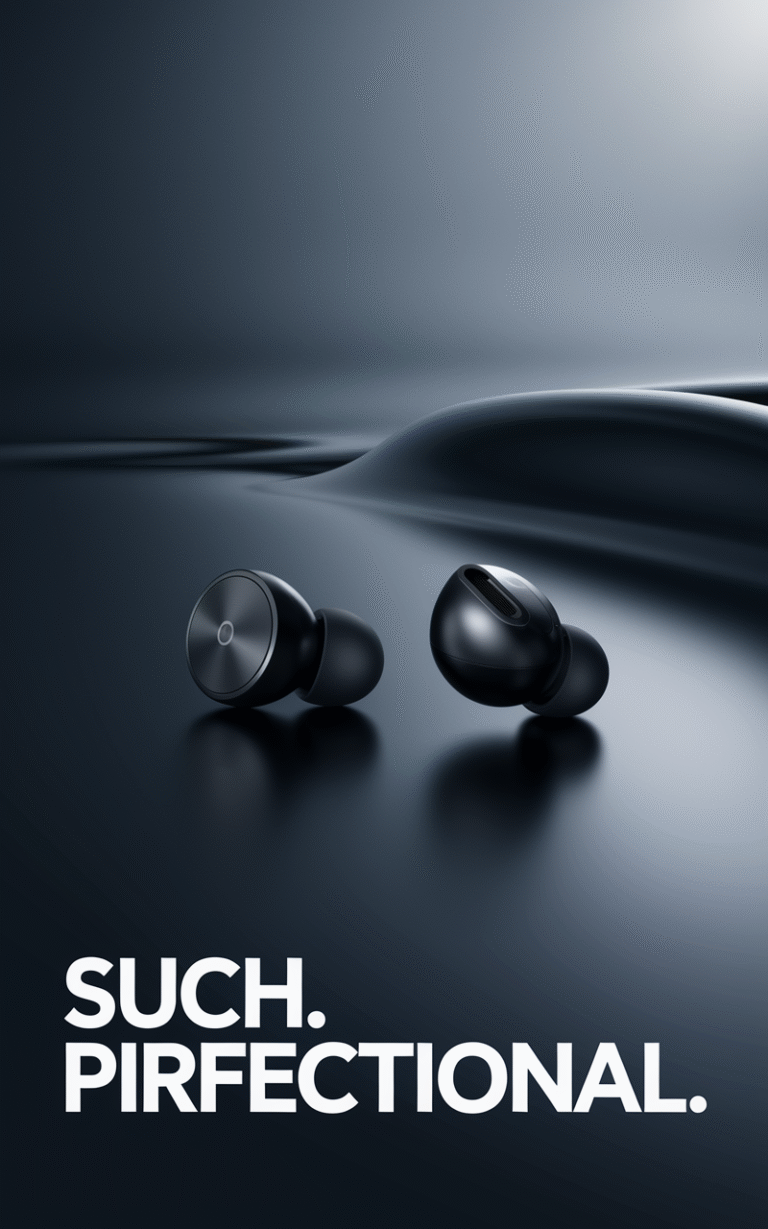The Ultimate Guide to Mastering Wireless Earbuds: Maximize Sound Quality, Comfort & Hearing Health on the Go!
Discover how to enhance your wireless earbud experience by optimizing sound quality, ensuring comfort, and protecting your hearing wherever you go.
Understanding Wireless Earbuds Technology
Wireless earbuds have transformed portable audio, eliminating cords but introducing new challenges. To maximize performance, it’s important to grasp how these devices work.
Most wireless earbuds rely on Bluetooth technology to connect with smartphones, tablets, or laptops. Bluetooth versions have improved over time, with recent iterations offering better data transmission, lower latency, and increased sound quality. Knowing which Bluetooth version your earbuds support can hint at their audio capabilities.
In addition to connectivity, wireless earbuds use small drivers to convert electrical signals into sound. The size and quality of these drivers directly affect audio fidelity. Some earbuds use dynamic drivers, while others incorporate balanced armature or hybrid setups. These differences influence the sound signature, bass response, clarity, and overall listening experience.
Battery technology also plays a role. Longer-lasting batteries support uninterrupted listening, while fast charging keeps you moving without lengthy waits. Finally, noise cancellation and transparency modes are common features that impact sound immersion and awareness.
Key wireless earbud technologies include:
- Bluetooth 5.0 or higher for optimal connectivity
- Active Noise Cancellation (ANC) for immersive sound
- Transparency mode to hear ambient sounds when needed
- Sweat and water resistance for durability during physical activities

Understanding these components will help you choose and use earbuds effectively to maximize sound quality and usability.
Maximizing Sound Quality on Wireless Earbuds
Sound quality often defines the wireless earbud experience. However, achieving premium audio is not solely about expensive gear. Several factors and adjustments can help optimize sound performance.
Selecting the Right Ear Tips for Sound Isolation
Proper ear tip selection greatly influences sound quality and comfort. Most earbuds come with silicone tips in various sizes, and some offer foam tips.
Foam tips tend to provide superior noise isolation by sealing the ear canal tightly. This seal reduces external noises, allowing you to hear details and bass more clearly without increasing volume. Silicone tips can be comfortable but may let in more ambient noise, affecting clarity.
Experiment with different tip sizes and materials to find the best combination that balances seal and comfort. A good seal prevents sound leakage and enhances bass response.
Adjusting Playback Settings
Many smartphones and music apps provide equalizer (EQ) settings to tailor sound. Customizing EQ can correct frequency imbalances and suit your preferences.
- Boosting bass frequencies enhances depth and warmth
- Tweaking midrange improves vocal clarity
- Adjusting treble sharpens details and brightness
However, avoid excessive boosts as they may distort sound or damage hearing.
Firmware Updates and Codec Support
Manufacturers regularly release firmware updates that improve sound performance and reduce latency. Checking for and installing these updates ensures your earbuds perform their best.
Additionally, codec support matters:
- SBC is a basic codec with limited sound quality
- AAC offers better sound, especially with Apple devices
- aptX, aptX HD, or LDAC provide high-resolution audio on compatible devices
Choosing earbuds supporting advanced codecs paired with devices that also support them enhances audio fidelity.
Ensuring Comfort for Extended Use
Wearing wireless earbuds continuously requires attention to comfort. Discomfort can lead to ear fatigue and even discourage usage.
Proper Fit and Earbud Design
Earbud comfort depends heavily on fit and design. Ergonomic shapes conform to different ear structures, preventing pressure points.
Try multiple ear tip sizes to find the most comfortable seal without excessive force. Some earbuds offer adjustable wings or hooks to stabilize fit during movement.
Lightweight models reduce ear strain, important for prolonged listening such as during commutes or workouts.
Managing Ear Fatigue and Irritation
Extended wear can cause soreness or irritation. To minimize this:
- Take regular breaks every 1-2 hours to let ears rest
- Avoid pushing earbuds too deeply into the ear canal
- Keep earbuds clean to prevent bacteria buildup that causes infections
Moisture and sweat, especially during exercise, can affect comfort and hygiene. Choosing sweat-resistant earbuds and wiping them after use is advisable.

Using Wearing Styles to Improve Stability
Different wearing methods affect comfort and sound isolation:
- In-ear canal fit offers best isolation but can cause fatigue if too deep
- Semi in-ear designs sit on the outer ear and may be more comfortable but less isolating
- Ear hooks or fins are useful for secure fit during physical activities
Select the style that best suits your needs and lifestyle.
Protecting Hearing Health While Using Wireless Earbuds
Many people overlook the impact of prolonged earbud use on hearing health. Sound-induced hearing loss is a risk, especially with improper volume or usage habits.
Volume Awareness and Safe Listening Practices
Listening at high volumes for extended periods damages sensitive hair cells in the inner ear. To reduce risk, follow these guidelines:
- Keep volume below 60% of maximum capacity
- Use volume-limiting features if available
- Limit continuous listening sessions to under one hour
- Give ears regular rest periods
Many devices offer warnings about high volume exposure; heed these alerts.
Noise Cancellation and Hearing Safety
Active noise cancellation (ANC) reduces external noise, allowing you to listen at lower volumes. Wearing ANC earbuds in noisy environments can protect hearing by reducing the need to raise volume in an attempt to block noise.
However, transparency mode allows some environmental sounds through, enhancing awareness and safety during activities like walking or cycling.
Ear Hygiene and Maintenance
Proper cleaning of earbuds prevents ear infections that can impact hearing health. Tips include:
- Wipe earbuds regularly with a dry cloth or alcohol swabs
- Clean ear tips separately with mild soap and water
- Avoid sharing earbuds to reduce bacteria transmission
- Keep earbuds dry and store them in cases designed for ventilation
Good hygiene habits support ear health alongside audio safety.
Optimizing Wireless Earbuds for Different Situations
Wireless earbuds are versatile for various contexts, but settings and usage may differ depending on activity.
Using Wireless Earbuds for Sports and Workouts
- Opt for earbuds with IPX4 rating or higher to resist moisture
- Use ear hooks or fins for firm fit
- Choose dynamic drivers for punchy bass that energizes workouts
- Use short playback sessions with breaks to avoid ear fatigue
Commuting and Travel Tips
When traveling by public transport or airplanes, sound isolation is vital for a peaceful experience.
- Prefer earbuds with ANC to drown out ambient noise
- Use foam tips for better sealing
- Enable transparency mode when needing awareness (e.g., announcements)
- Maintain battery charge by carrying case and power bank if needed
Working from Home and Studio Use
For calls, video conferences, or casual listening at home, clarity and microphone quality become priorities.
- Choose earbuds with multiple microphones and noise-canceling mics for call quality
- Use customizable EQ for voice clarity
- Opt for comfortable models for long meetings
- Utilize companion apps for sound and mic adjustments

Buying Guide: What to Look for When Mastering Wireless Earbuds
Key Features to Consider
- Sound quality and driver type
- Bluetooth version and codec support
- Battery life and charging speed
- Fit, comfort, and ear tip options
- Noise cancellation and transparency modes
- Sweat and water resistance ratings
- Companion app availability for customization
- Microphone quality for calls
Budget Considerations and Brand Reputation
While some premium models cost more, mid-range earbuds often deliver excellent sound and features. Consider:
- Reading unbiased reviews
- Testing fit before buying, if possible
- Checking warranty and customer support
- Choosing brands with proven quality and update support
Balancing budget with needs ensures better satisfaction.
Product Comparison
Maintaining and Caring for Your Wireless Earbuds
- Regularly clean ear tips and earbuds
- Store in a protective case when not in use
- Avoid exposure to extreme temperatures and moisture
- Charge according to manufacturer instructions to preserve battery health
- Update firmware to keep software optimized
Routine care prevents malfunction and degradation.
Future Trends in Wireless Earbuds
Staying informed about technological advances helps you anticipate new opportunities to enhance your listening experience.
- Enhanced AI-based adaptive sound and personalized EQ
- Health monitoring features like heart rate tracking
- Improved battery technology for longer playtime
- Advanced noise cancellation with environment awareness
- More seamless device switching across ecosystems
Such innovations will continue improving comfort, sound quality, and hearing protection.
Conclusion
Mastering wireless earbuds requires more than just buying the latest model. By understanding technology, choosing the right fit, customizing sound, protecting your hearing, and maintaining your earbuds, you unlock their fullest potential. Whether for workouts, commuting, or leisure, these strategies ensure an enjoyable and safe listening experience on the go. With careful attention to comfort and hearing health, wireless earbuds become indispensable daily companions rather than a source of strain or risk.
